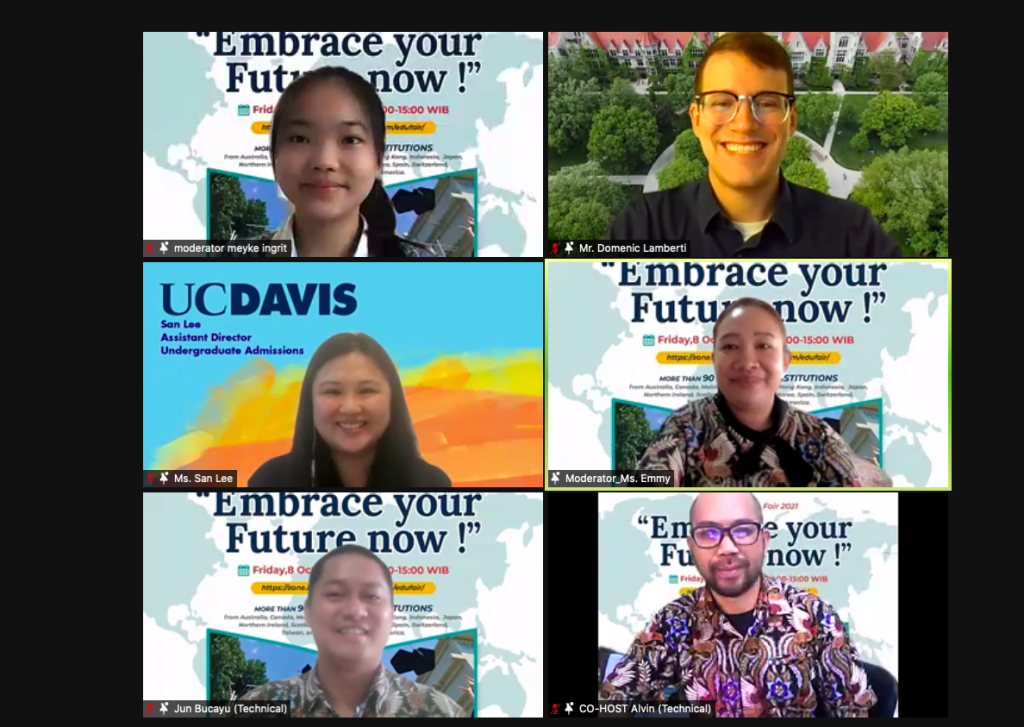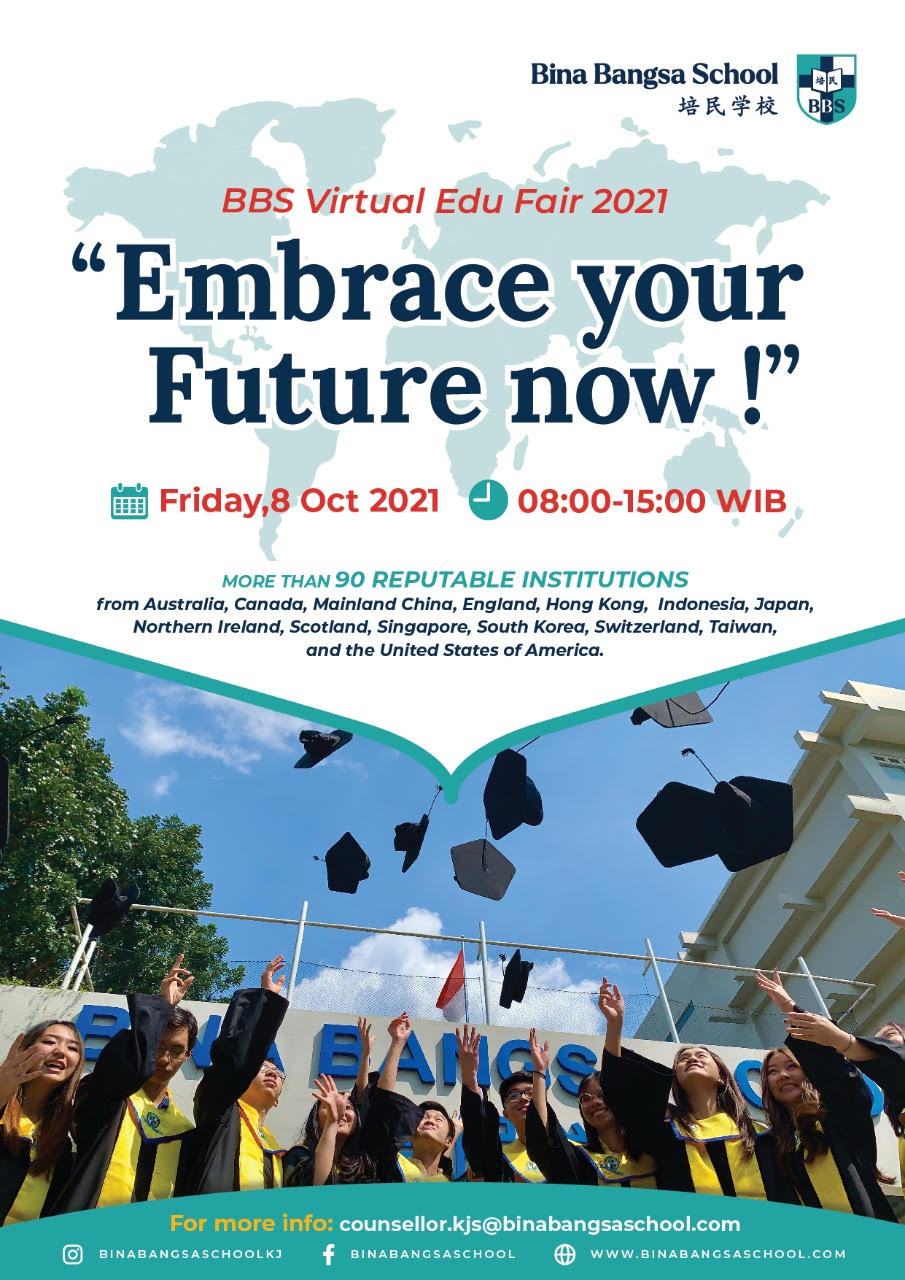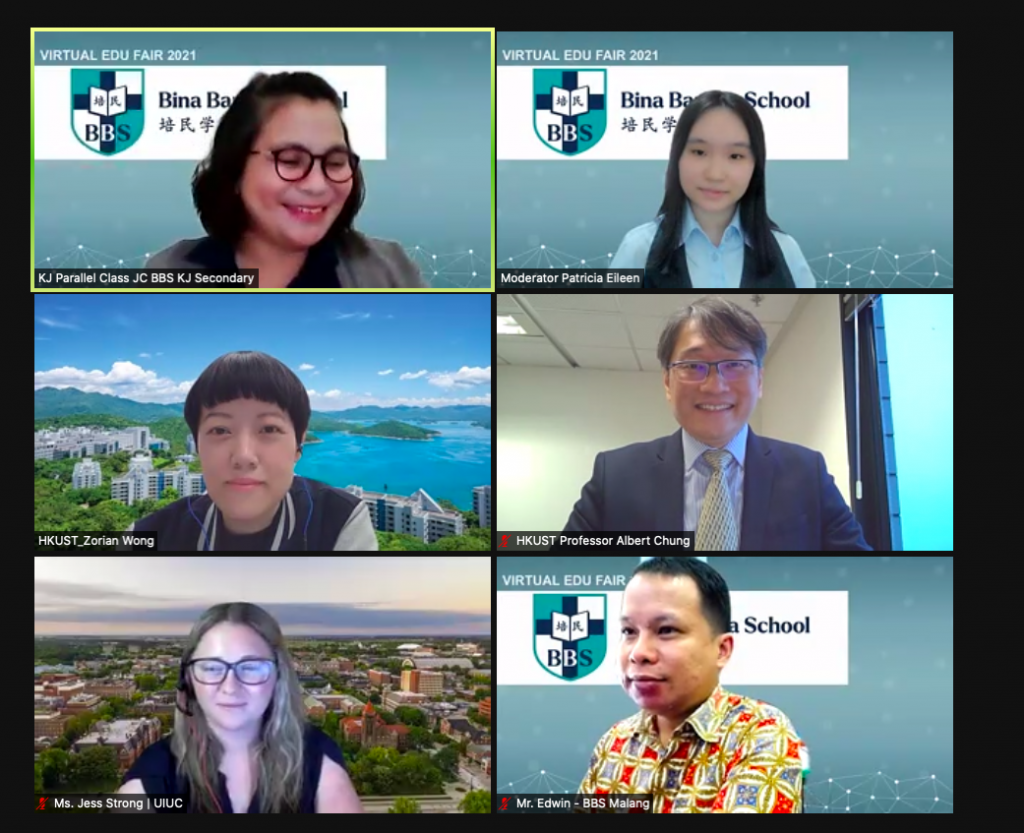It was Friday, 9th of October, 2021 and the Edu Fair had begun. Now that the future is closing in, time is of the essence. Finding one’s passion is crucial at this moment of time since only that individual can discover what they truly love to do.
Written by Winston Sec. 4 Newton (BSP Scholar)
However, if they choose the wrong passion in the future, it might have a negative consequence for the rest of their career because they don’t actually enjoy doing it.

This fair was a great opportunity to get an insight of the areas that one might be interested in. I was presented with four webinars that I could join in: Building Your Portfolio, Careers in Engineering, Careers in CS & Technology, and Careers in Business & Finance. I still haven’t found my passion yet, but I’ve been looking forward to getting into Data Science these past few months. Nevertheless, I joined all of them, since I wanted to get all the insight from all the panelists that would be hosting the meeting.
“To fulfill your life, is to find what you’re good at, and do it passionately.”
– Winston
The first webinar that I participated in was about Building Your Portfolio:
I met Ms. San Lee, the Assistant Director of Undergraduate Admissions in the University in Davis, California. She was very welcoming, kind, and always had a smile on her face. Ms. Lee announced that this university and some others were test-blind. Test-blind means that they won’t use exams like SATs or ACTs in order to get into universities, they would only be used for enrollment in which subjects an individual would fit in. The following person after her was Mr. Domenic Lamberti. He was also an Admissions Assistant in the University of Chicago. He was very supportive and friendly to us. Mr. Lamberti stated that what universities are looking for when admitting their students are what the students are passionate about, and what they love to do. They try to understand you as an individual and the reason you want to study at their campus. He also stated that extra-curricular activities or the activities that you joined outside of your school are important.
Hearing him say this, I realized that academic scores were not the only aspect universities were looking forward to in a person. Even the non-academic activities matter in order to be accepted into a university. As a member of the Bilingual Study Program I’m grateful that I have decided to join it. It was one of the best non-academic activities where I got to indulge in Western and South East Asian competitions and explore their various culture.
The 2nd webinar I participated in was about Careers in Engineering:
We were greeted by three panelists this time, Professor Albert Chung, Ms. Zorian Wong, and Ms. Jess Strong. Ms. Wong is the International Recruitments Coordinator for the University of Hong Kong. I recalled Professor Chung saying that they have six schools that students may be interested in. He also stated that Maths and one subject of Science were requirements for students to apply to their university. Students that joined the university have a certain time period to explore what areas they might be interested in before deciding. So overall this university was very welcoming in my opinion. The following panelist was Ms. Jess Strong. She was also an International Recruitment Coordinator from the University of Illinois Urbana Champaign. I remembered her saying that there were 15 engineering programs available in the campus, and that Maths and Physics were a requirement for engineering.
The 3rd webinar was called Careers in Computer Science and Technology
There were three panelists. First, we were greeted by Mr. Riko Kho, the Country Manager of Indonesia. His job was to assist students that aim to study in the University of Sydney. He announced that Sydney was a great place to study, since it was Australia’s best economic performer. Sydney was ranked 1st in Australia and 4th in the world for graduate employability. The following panelist was Dr. Grace Ngai. She was from the Hong Kong Polytechnic University, which was the 36th ranking for Computer Science. Dr. Ngai told us that CS is for solving real world problems, such as anticipating when a fight would happen only through cameras, or when a fire would start in a factory.
She also quoted, “Computer science is no more about computers than astronomy is about telescopes.” – Edsger Dijkstra (1930-2002).
These devices are tools for observing worlds otherwise inaccessible. The computer is a tool for exploring the world of complex processes, whether they involve cells, stars, or the human mind. So computer science is not just about computers, it’s broader and wider than that. The third panelist was Ms. Seeun Kim from the University of Washington. She stated that 1/3 of CS students are women, and that Seattle has the 2nd hottest start-up scene in the nation. It seemed shocking to me when she said that 470+ startups launched by UW are undergraduate students.
The last webinar was about Careers in Business and Finance.
This was the webinar that I was featured in, alongside a friend named Frederich. Both of us were moderators of this session, with Ms. Jacqueline being one of the hosts of the session. Before us were the faces of three panelists. Mr. Andrew Low, Mr. Ying Tsoi, and Ms Josephine Pope. I vividly remember Mr. Low stating that Business was not only about Finance, and that he was annoyed a lot of individuals think so. Business has a broader view besides Finance.
The first panelist was Mr. Ying Tsoi from the University of Hong Kong. He was a student recruitment counsellor and has been working very closely with schools in Asia and around the world to promote the institution since 2017. Born and raised in Hong Kong, he has also lived extensively in mainland China and the United States and is passionate about using his experiences to support students from different backgrounds. He stated that investing in Business required a huge commitment, and some business graduates have to work up to 100 hours per week. However, the rewards are high-paying as well. So overall Business was a high-risk, high-paying job.
The second panelist was Mr. Andrew Low, from the Singapore Management University, he was a Senior Associate Director, Office of Admissions and Financial Assistance. Andrew’s specific responsibilities at SMU are related to all key areas of undergraduate admission matters including international students’ admissions to the undergraduate programmes in SMU. He explained to us that Business was not all about Finance only. The last panelist was Ms. Josephine Pope, from the University of Melbourne, was the Student Recruitment Officer, from the Faculty of Business and Economics.
The takeaway from this webinar that I got was Business was all about critical thinking. In the end, I’m thankful I got to experience this.


More Stories
Good Friday AY 24-25
OPENING A NEW CHAPTER— STUDENT COUNCIL AY 25-26
STEAM WEEK AY 24-25